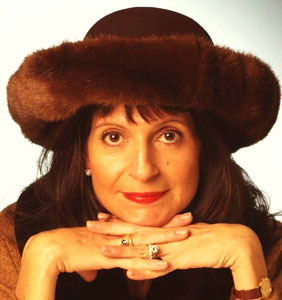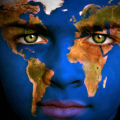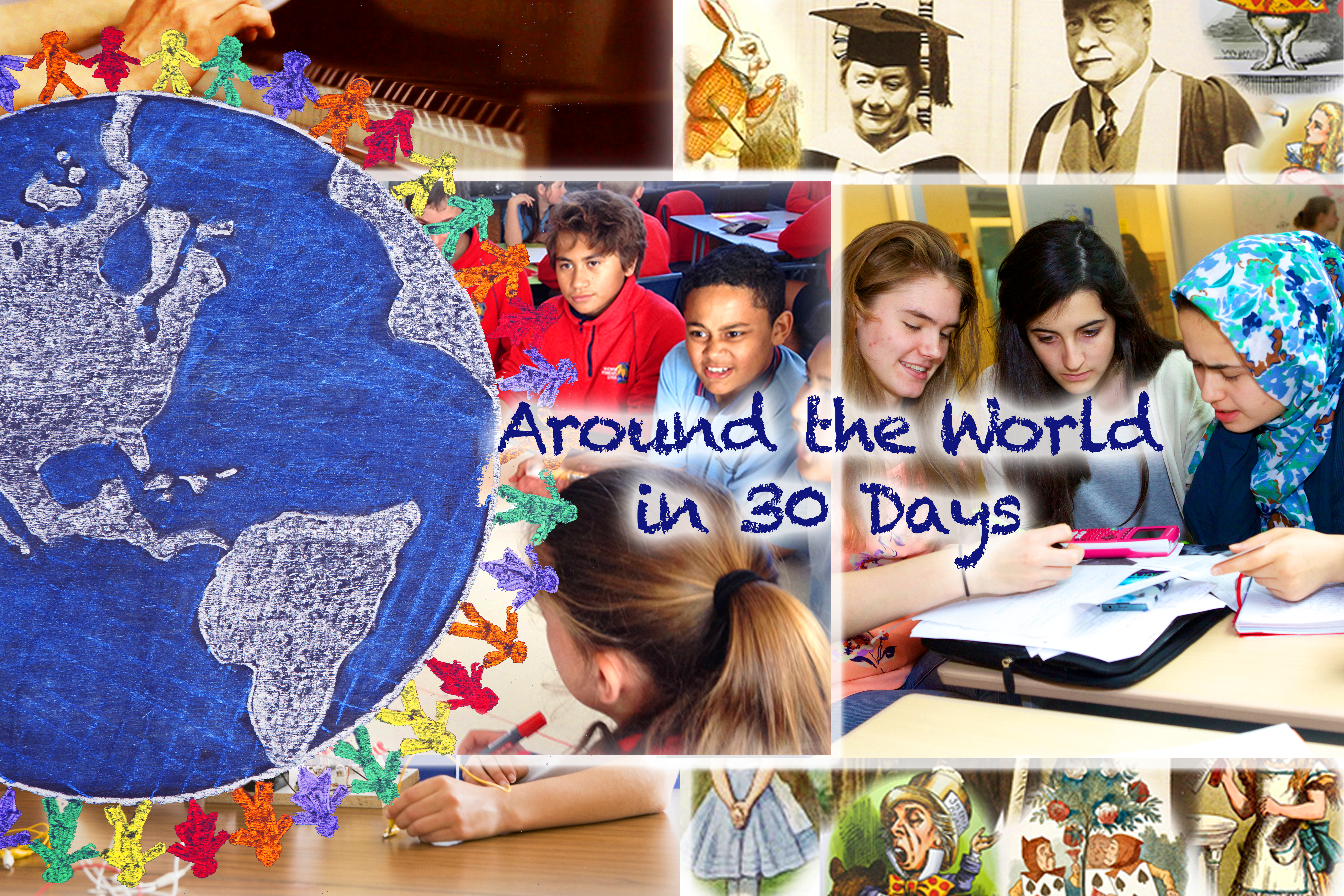What are the biggest trends shaping education? Define learning literacy? How is online education transforming Latin America? Our voices in A Pesquisa Global para a Educação este mês, including Thana Faroq, Gabriel Sanchez Zinny, Tracy Burns, Felix Bernstein, Michael CALL, Jon Harman and Jim Wynn, shared profound insights into the art world, the growing opportunities afforded by new technology, the lessons learned in observing street life, and strategies to revolutionize education in order to realize in our children the promises of life-long learning. And listen up Silicon Valley – nossa Top 12 Global Teachers have also shared their top tips on designing software for the world’s classrooms.
How education will serve a rapidly changing global economy has continually become a more pressing issue. This is no less the case in Latin America. Gabriel Sanchez Zinny addressed the need for educational transformation in newly burgeoning economies: “As Latin America comes down from a decade of growth based on exporting commodities at high world prices, it faces the next challenge: transitioning to a higher-productivity economy.” With growth comes the need for new skills and a new market for post-secondary education. The problem here is the price tag of traditional schools and “privado, lower-cost, largely online options are well positioned to reshape education more fundamentally.”
Talented young artist Felix Bernstein’s debut of Bieber Bathos Elegy at The Whitney Museum of American Art this month is a hybrid work of opera, poesia, cabaret drag, and deconstruction criticism featuring Bernstein as the thinking millenial’s poet trying to figure out where lieth the reality in the labyrinth of life in a digital age. The performance also evokes the theme of mourning and loss. Bernstein allows personal tragedy, the death of his sister, to influence his art. “In your early twenties, you have to go really fast otherwise you miss the boat. And I’m on the boat…but I’m not willing to merely look forward.”
Perhaps the greatest challenge facing global education is rising inequality. Tracy Burns, in her interview about the OECD report, Tendências Shaping Educação 2016, clearly outlined the discrepancy: “…o fosso entre ricos e pobres está no seu nível mais alto em 30 anos.” Problems that face these countries are not limited to economic inequality. They include climate change, the expansion of metropolitan life, tight domestic budgets, and changing labor demands. And Burns commented, “…sistemas de ensino precisa criar pensadores críticos que são capazes de se conectar suas decisões diárias de consequências a longo prazo – not just for themselves but for society as a whole.”
“We have never taught people how to learn. We have confused the teaching of soft skills as teaching learning, but it wasn’t.” This thought from CEO of Imagine Entertainment, Jim Wynn, set the tone for the 16th Education Fast Forward (EFF16) debate. Keynotes including Secretary General of the International Federated Red Cross and Red Crescent Societies, Elhadj As Sy, Senior Education & Technology Policy Specialist and Global Lead for Innovation in Education at the World Bank, Michael CALL, and ICT and Digital Literacy expert Jon Harman, joined delegates from nations all over the globe to debate how we develop learning capacities, the behaviors we now need as well as the competencies essential to thriving in a globally connected world.
“Stories that cross cultural barriers can describe realities to them and bring new perspectives to their little worlds. They will grow up with real values of tolerance, love and understanding.” Powerful insights from young Yemenese artist polícia Farooq who uses her art “to eliminate ignorance, educate and inspire, even during times of war.” In my interview with Thana, she reflected on storytelling through pictures, the role her International Baccalaureate education played in her incredible journey as an artist, and the capacity of the human spirit to prevail.
Tributes continue to flow for the remarkable Joe Bower who unexpectedly passed on in early January. Through his regular contributions to the Top 12 Global Teacher Blogger series each month, Joe inspired me, our entire team and thousands of educators, parents and students around the world. Joe’s legacy lives on in the rich contributions he made to all those who knew him and in his popular blog, “For the Love of Learning.”

Junte-se a mim e líderes de renome mundial, incluindo Sir Michael Barber (Reino Unido), Dr. Michael Bloco (EUA), Dr. Leon Botstein (EUA), Professor Clay Christensen (EUA), Dr. Linda, Darling-Hammond (EUA), Dr. MadhavChavan (Índia), Professor Michael Fullan (Canadá), Professor Howard Gardner (EUA), Professor Andy Hargreaves (EUA), Professor Yvonne Hellman (Holanda), Professor Kristin Helstad (Noruega), Jean Hendrickson (EUA), Professor Rose Hipkins (Nova Zelândia), Professor Cornelia Hoogland (Canadá), Honrosa Jeff Johnson (Canadá), Senhora. Chantal Kaufmann (Bélgica), Dr. EijaKauppinen (Finlândia), Secretário TapioKosunen Estado (Finlândia), Professor Dominique Lafontaine (Bélgica), Professor Hugh Lauder (Reino Unido), Senhor Ken Macdonald (Reino Unido), Professor Geoff Mestres (Austrália), Professor Barry McGaw (Austrália), Shiv Nadar (Índia), Professor R. Natarajan (Índia), Dr. PAK NG (Cingapura), Dr. Denise Papa (US), Sridhar Rajagopalan (Índia), Dr. Diane Ravitch (EUA), Richard Wilson Riley (EUA), Sir Ken Robinson (Reino Unido), Professor Pasi Sahlberg (Finlândia), Professor Manabu Sato (Japão), Andreas Schleicher (PISA, OCDE), Dr. Anthony Seldon (Reino Unido), Dr. David Shaffer (EUA), Dr. Kirsten Immersive Are (Noruega), Chanceler Stephen Spahn (EUA), Yves Theze (LyceeFrancais EUA), Professor Charles Ungerleider (Canadá), Professor Tony Wagner (EUA), Sir David Watson (Reino Unido), Professor Dylan Wiliam (Reino Unido), Dr. Mark Wormald (Reino Unido), Professor Theo Wubbels (Holanda), Professor Michael Young (Reino Unido), e Professor Minxuan Zhang (China) como eles exploram as grandes questões da educação imagem que todas as nações enfrentam hoje.
A Pesquisa Global para Educação Comunitária Página
C. M. Rubin é o autor de duas séries on-line lido pelo qual ela recebeu uma 2011 Upton Sinclair prêmio, “A Pesquisa Global para a Educação” e “Como vamos Leia?” Ela também é autora de três livros mais vendidos, Incluindo The Real Alice no País das Maravilhas, é o editor de CMRubinWorld, e é um Disruptor Fundação Fellow.
Siga C. M. Rubin no Twitter: www.twitter.com/@cmrubinworld






Comentários Recentes